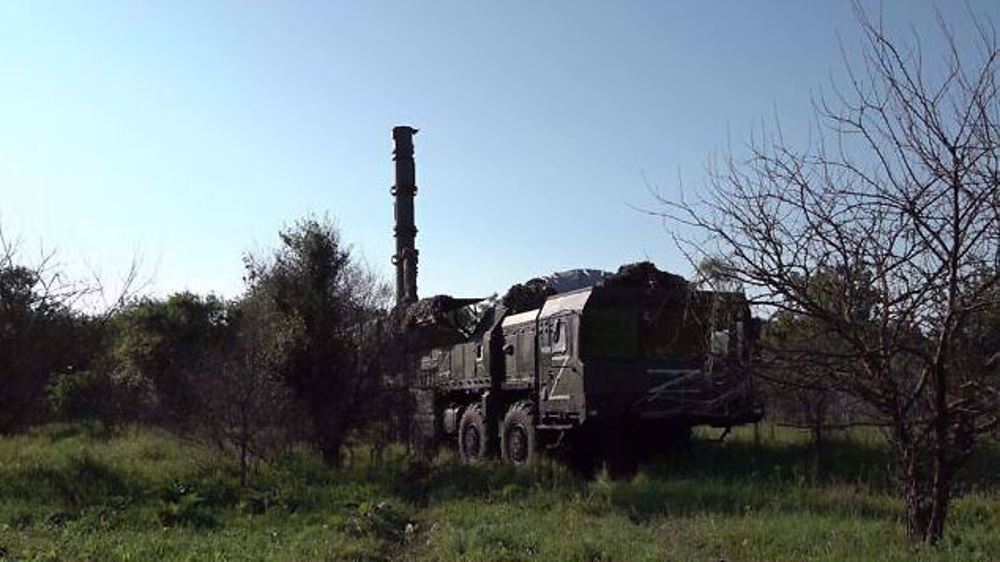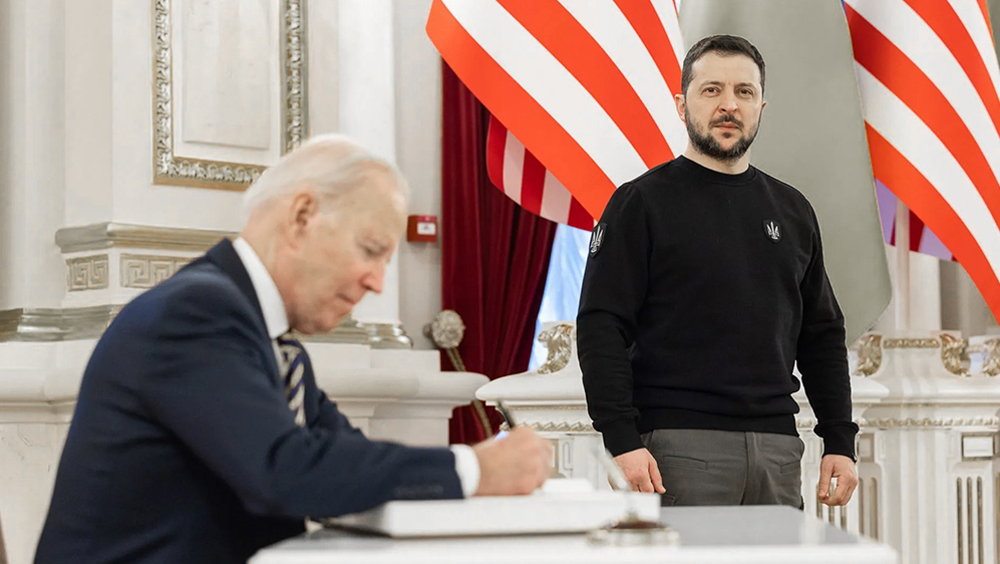Russia says US causes irreparable damage to security balance by deploying weapons to space
The United States will deal an irreversible blow to the existing security balance in space, Russia has warned, in the wake of an announcement by Washington about plans to deploy weapons to space.
Earlier this month, General John “Jay” Raymond, commander of the newly minted US Space Force, claimed that a pair of Russian spacecraft had been allegedly shadowing a multi-billion-dollar American spy satellite hundreds of kilometers above the Earth’s surface the previous month.
He said what Russia had done was “unusual and disturbing,” adding that he had conveyed Washington’s concerns in this regard to Moscow through diplomatic channels.
The US Space Force, for which the administration of President Donald Trump is requesting 15 billion dollars in its budget proposal, is the first new military service since the US Air Force was established in 1947, two years after the conclusion of the World War II.
According to Raymond, in mid-January Russia’s satellites of Cosmos 2542 and Cosmos 2543 were allegedly sidling near the US state-of-the-art satellite, identified as USA 245, known to space experts as a KH-11.
On Monday, Russia’s Foreign Ministry rejected Washington’s claim that Russian satellites were tailing the American space machine, stressing that the Russian satellites were not weapons, but rather “inspector” spacecraft engaged in an “experiment.”
“We would like to point out that the movement of our spacecraft did not pose a threat to the US satellite and, most importantly, did not violate any norms and principles of international law,” the ministry stated.
It also lambasted Washington’s idea of deploying weapons to space, which could trigger a new era of arms race in space, stressing that Moscow did not have plans to solve problems in space using weapons.
“This provocative step is another attempt by the United States to justify the US plans to deploy weapons in space, shifting to others the responsibility for destabilizing the situation in space security,” the ministry warned.
It also stressed that the implementation of US military plans in space would inflict irreparable damage upon the current space security system.
Last year, the landmark Intermediate-Range Nuclear Forces Treaty (INF) collapsed after Washington pulled out of the 1987 bilateral deal with Moscow. The INF had banned all land-based missiles with the range of up to 5,500 kilometers.
The withdrawal from the agreement came after Washington accused Moscow of secretly violating it. Russia, which has repeatedly rejected these allegations, stopped implementing the INF after the pullout.
Late last year, Russian President Vladimir Putin warned that nothing can hold back yet another arms race and thus international security will be damaged if the Strategic Arms Reduction Treaty (START) with the US was not renewed.
The START accord is the last major nuclear arms control treaty between Moscow and Washington that puts a limit on the development and deployment of strategic nuclear warheads of both countries.
Back in July 1991, START, which later was called START I, was signed by then US President George H. W. Bush and Mikhail Gorbachev, the last president of the Soviet Union, barring both countries from deploying more than 6,000 nuclear warheads atop a total of 1,600 intercontinental ballistic missiles (ICBMs) and bombers.
In January 1993, President Bush and Boris Yeltsin, the former Russian president, signed START II, but it collapsed and never entered into force.
The START I treaty expired in late 2009 and its replacement, called the New START or START III, was signed in April 2010 by former US President Barack Obama and then Russian President Dmitry Medvedev, under which both sides agreed to halve the number of strategic nuclear missiles and restrict the number of deployed strategic nuclear warheads to 1,550.
The New START can be extended for another five years, beyond its expiry date in February 2021, by mutual agreement.
VIDEO | Former FBI agent criticizes US Congress for 'outright corruption'
IRGC chief urges Muslim countries to cut aid routes to Israel
'New chapter in cooperation': Iran, Venezuela sign new MoUs
Jordan sentences former lawmaker for supporting Palestinian resistance
Basij volunteer forces hold massive drills in southwestern Iran
Israeli war criminals 'not welcome', US city says after ICC ruling
US vetoing of Gaza ceasefire resolution ‘disgraceful’: Iran’s UN envoy
VIDEO | IAEA adopts anti-Iran resolution tabled by E3













 This makes it easy to access the Press TV website
This makes it easy to access the Press TV website